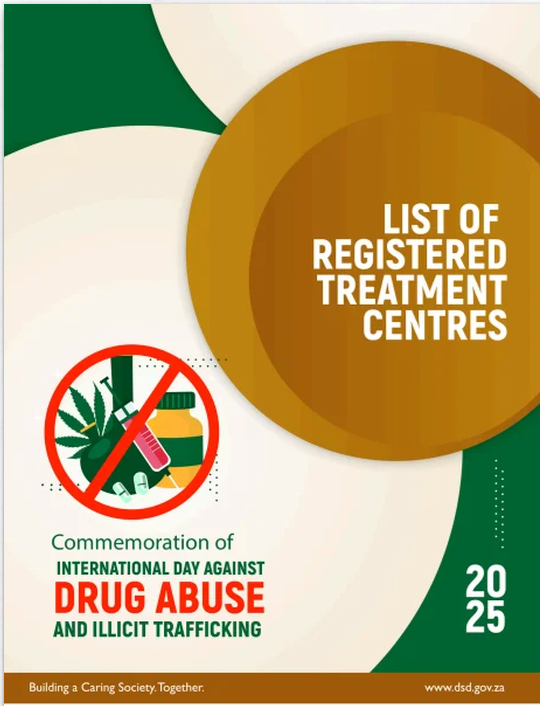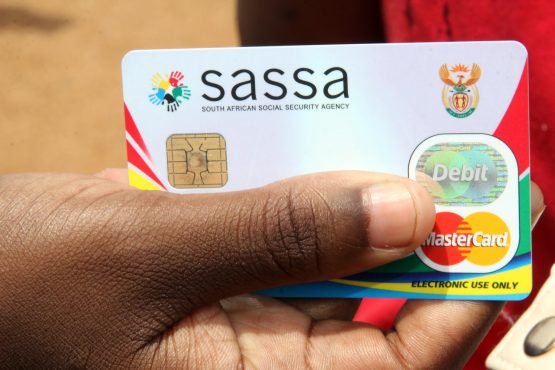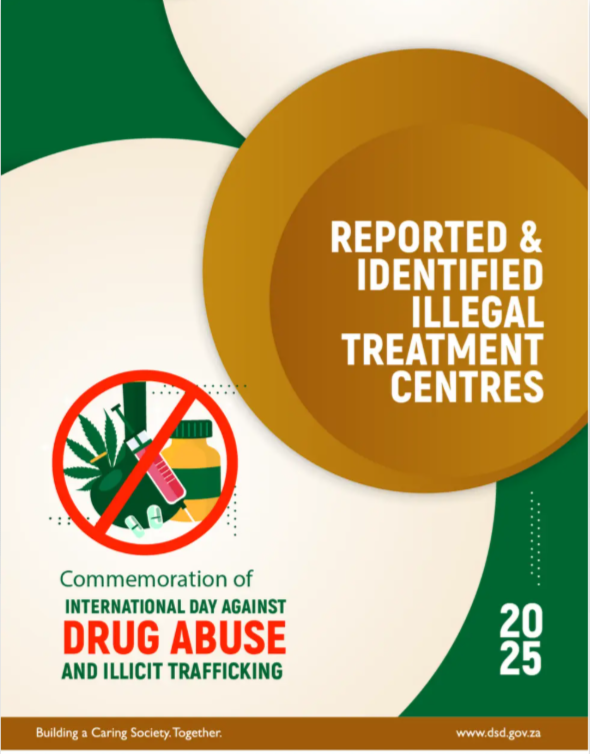QUESTIONS AND ANSWERS
When will borders be opened for international travel?
Borders will be reopened for international travel from 1 October 2020.
What are the health protocols when travelling to South Africa?
Travellers visiting the country will be expected to abide by the regulations which include mandatory wearing of masks at all times, practising social distancing in public spaces, regular washing or sanitizing of hands and presenting a negative COVID-19 test result not older than 72 hours from the time of departure.
What informed the decision to open the borders to international travel?
Government has adopted a gradual reopening of borders and ports of entry for international travel for business, leisure and other travel guided by the communique published by the Word Health Organisation (WHO) on Public Health on considerations for international travel on 30 July 2020 as well as epidemiological and transmission rates both in South Africa and the traveller’s countries of origin.
How is South Africa doing with regard to COVID-19 response?
South Africa has conducted over 4 million COVID-19 tests in both public and private health care facilities. The recovery rate is currently at 90 percent. The country now has sufficient hospital capacity, including beds, ICU space and ventilators.
What is COVID-Alert APP?
The COVID-Alert APP alerts subscribers and provides relevant information if they have been in contact with any person who has tested positive for the virus. The APP helps to minimize the risk of spreading the virus. We request all international travellers who intend to visit the country to download the APP so that they are able to monitor and minimise their risk of exposure to the COVID-19 virus.
Where can I download the COVID-Alert APP?
You may download the APP on Apple App Store or Google Play Store before your arrival in South Africa or on arrival.
What are the requirements for the 72 hour PCR test for COVID-19?
Travellers intending to visit the country will be expected to produce a PCR (polymerase chain reaction) test that is not older than 72 hours from the time of departure from the country of origin to South Africa; and be presented before travelling to South Africa. This test must be conducted by a certified medical practitioner and should have the name and signature of the practitioner who conducted such test.
What is the health screening process on arrival in South Africa?
Upon arrival in the port of entry, the traveller will be screened for any COVID-19 symptoms or for contact with people who have been infected with the COVID-19 virus. Travellers will also need to provide proof of accommodation address should they need to self-quarantine at the time of arrival in the country. Should the traveller display any COVID-19–related symptoms or been in contact with an infected person(s), they will be expected to take a mandatory COVID-19 test. This test will be at the traveller’s cost. If the COVID-19 test comes back positive, the traveller will be subjected to a 10-day quarantine at a designated site. The accommodation at a quarantine site will be at the traveller’s cost.
How are countries identified as high risk, medium risk and low risk?
South Africa has developed a risk categorisation model for different international travellers. This model classifies international travellers according to a scale of high, medium and low risk. High risk travellers are those who come from countries with higher numbers of COVID-19 infections and reported deaths compared to South Africa.
Medium risk travellers are from countries with relatively equal number of infections and death toll to South Africa and low risk travellers originate from countries with lesser number of infections of COVID-19 and death toll than South Africa.
Will leisure travellers from high risk countries be permitted to travel to South Africa?
Leisure Travellers from high risk countries will not be permitted to travel to South Africa, except if they spend 10 days or more in a low risk country before arriving in South Africa.
Which travellers from high risk countries will be allowed to travel to South Africa?
Business travellers with scarce and critical skills including diplomats, repatriated persons, investors and people participating in professional sporting and, events will undergo the same health protocol screenings.
What happens if a traveller from a high risk country has spent 14 days in a low risk country prior to traveling to South Africa?
If the passport of the traveller from a high risk country indicates that he/she has spent 10 days or more in a low risk country before departure, he/she will be considered to be arriving from a low risk country. Long term visa holders who visit the country for business purposes will be allowed to travel to South Africa. These travellers will also be subject to health screenings for COVID-19 symptoms at the port of entry. Airlines from high risk countries are not necessarily banned, but their crew will be required to isolate in facilities at designated accommodation at the cost of their employer.
What are the requirements for travellers wishing to travel to South Africa from medium and low risk countries?
Travellers from medium and low risk countries will only be allowed into the country subject to the prevailing visa requirements.
Which airports will be opened for international air travel?
Three airports will be opened and operational for international air travel. These airports are OR Tambo International (in Johannesburg, Gauteng), Cape Town International (in Cape Town, Western Cape) and King Shaka International in (Durban, KwaZulu-Natal).
What are the requirements for travellers travelling to South Africa by air?
All travellers landing at these airports must present a PCR test which is not older than 72 hours from the time of departure from the country of origin to South Africa. Furthermore, the international travellers should possess a mandatory travel insurance which is supposed to cover the COVID-19 test and quarantine costs. All these travellers will be subjected to COVID-19 screening on arrival. Those who present COVID-19 symptoms which include elevated body temperatures and flu-like symptoms, will be required to take a COVID-19 test which should be covered by the travel insurance. Should the test results come back positive, the traveller will be subjected to mandatory quarantine, which will also be paid for by the traveller or the travel insurance.
What are the requirements for travellers from other African countries?
Travellers from all African countries must produce a 72 hour PCR test at all ports of entry. School learners and educators, who commute daily to South Africa, are exempted from this requirement. However these daily commuters will be screened for COVID-19 symptoms before they enter the country.
Which land ports of entry will be opened for travellers from other African countries?
18 land points of entry will be opened. Travellers who present themselves at borders which are unable to accommodate them will be directed to the currently operational border posts for processing.
What about daily commuters from neighbouring countries?
Daily commuters who reside in cross-border areas/towns and those who are from neighbouring countries including those with relevant work permits and school children and teachers will be allowed to enter and exit the borders for work purposes. These commuters will be screened for COVI-19 symptoms and where necessary will be subjected to quarantine and isolation. Furthermore, these commuters will be expected to wear face masks, wash hands and sanitise regularly and practise social distancing measures.
What about travellers wishing to enter South Africa via sea ports? To facilitate ease of transportation of goods and medicines to and from the country, ships will be allowed to dock, load and off-load cargo. Crew members from the cargo ships will be allowed to crew changes. These crew members will also be medically screened for COVID-19 symptoms. Passenger liners for luxury travel are still not allowed to dock and off-load passengers.
Are business travellers from high-risk countries allowed to bring their families?
Yes, however the family members will be treated the same as the main traveller. The family members must follow the travel protocols.
Will South Africans who are in high risk countries be allowed to enter the country?
Yes, however they will be required to follow the same protocols as travellers from high risk countries.
Will business and leisure travellers from Africa also have to produce a 72-hour old PCR test on arrival at borders?
Yes, all travellers from Africa will have to produce a 72-hour old PCR test at all ports of entry.
Can I travel to a high-risk country to visit a family member?
Yes, you can, however you will be subject to the travel protocols in that country.
If I travel out of the country, do I still do the PCR test and do I have to do the same when I come back?
It will depend on the protocols for the country you are visiting. When you return you will be subjected to the protocols from South Africa.
I work on a cargo ship and reside in South Africa, am I allowed to go home after the crew changes?
South African crew disembarking at South African ports from a vessel that has not effected crew changes or visited a foreign port 10 days prior arrival will be subjected to screening and proceed home to rest if they do not have any symptoms. They should be in possession of a PCR test certificate, which is not older than three (3) months when they embarked the ship.
How long do people from high risk countries have to be in a low or medium risk country in order to enter South Africa?
10 days, however when you travel to South Africa you will have to follow the protocols.
Are home PCR tests allowed, which are sent to a testing laboratory?
No, PCR tests must be performed by a certified medical practitioner.
How often will the list of high-risk countries be revised?
The list will be revised every two (2) weeks.
What about the VISA free status of citizens from certain countries?
The visa free status does not alter the current Covid-19 Regulations. The visa free status of citizens from the following countries and territories has been reinstated:
- South Korea; - Spain; - Italy; - Germany; - Hong Kong; - Singapore;
- USA; - UK; - France; - Portugal; and - Iran.
Are business persons providing services across borders be allowed multiple entry?
Business persons providing services across the borders of SADC are allowed multiple entry subject to the following: Producing a certificate of negative Covid-19 test result not older than 72 hours from the time of departure. This certificate is valid for 14 days.
What about transit travellers?
Transit travellers through South Africa by air will be allowed to connect to their destinations, subject to them complying with applicable health protocols.
Have VISA services resumed?
Visa services, including submission of applications through VFS Global, have resumed in the following categories: Visitor’s visas; study visa; treaty visa; business visa; crew visa; medical treatment visa; relative’s visa; general work visa; critical skills work visa; intra-company transfer work visa; retired person visa; corporate visa; exchange visa; waiver of prescribed requirement, as contemplated in section 31(2)(c); and appeals or reviews contemplated in section 8 of the Immigration Act.
If I am a business person from a high risk country wishing to travel to South Africa for business purposes – what is the process?
Any person from a country listed as having a high COVID-19 infection and transmission rate, who wish to undertake a business travel into South Africa, may, in writing, apply to the Minister of Home Affairs and demonstrate reasons for their request to enter the Republic for business purposes during the period of the national state of disaster.
Such applications must be directed to email:
This email address is being protected from spambots. You need JavaScript enabled to view it. and supported by—
(a) a copy of passport and/or temporary residence visa;
(b) proof of business activities to be undertaken in the Republic;
(c) proof of travel itinerary; and
(d) proof of address or accommodation in the Republic.
Which are the high risk countries?
The list of these high risk countries will be updated fortnightly and can be accessed on the Home Affairs website: www.dha.gov.za
Albania Brazil France India
Argentina Chile Georgia Iran
Armenia Columbia Greece Iraq
Austria Costa Rica Guatemala Ireland
Bahrain Croatia Guyana Israel
Belgium Czech Republic Honduras Jamaica
Bolivia Denmark Hungary Jordan
Bosnia and Herzegovina Ecuador Iceland Kuwait
Lebanon Nepal Peru Suriname
Luxemburg Netherlands Portugal Switzerland
Maldives North Macedonia Puerto Rico Ukraine
Malta Oman Qatar United Emirates
Mexico Palestine Romania United Kingdom
Moldova Panama Russia USA
Montenegro Paraguay Slovakia Venezuela
* As at 30 September 2020
What are the compliance requirements for Airline Operators?
A Foreign Operator (meaning an airline) is required to submit procedures that show the level of compliance with South African COVID-19 legislation for approval to the South African Civil Aviation Authority.
An Operator shall not board any passenger without a valid negative Polymerase Chain Reaction (PCR) or a valid COVID-19 negative test certificate.
What are the Compliance Requirements Relating to Passengers?
Passengers are required to wear face masks at all times and may only remove face masks during emergencies or when instructed by cabin crew to take them off, and must observe social distancing, ensure hand washing, and sanitize regularly.
A passenger who is unable to wear a face mask due to an underlying medical condition must submit a medical certificate from a registered medical practitioner to the Operator prior to departure.
A child under the age of two years may be exempted from wearing a face mask. This is because masks can restrict breathing for small children as their airways are smaller than older children and adults.
A passenger must provide to the Operator a negative PCR test certificate or a valid COVID-19 negative test certificate, obtained not more than 72 hours before the date of travel, from an accredited laboratory and in line with the World Health Organization requirements.
If a passenger is symptomatic, the necessary protocols of the Department of Health will be followed.
In the event of the passenger’s failure, for whatever reason, to submit a certificate as proof of a negative PCR test certificate or a valid COVID-19 negative test certificate upon arrival in South Africa, the passenger shall be subjected to a compulsory quarantine at a government designated facility as contemplated for in Health Directions, at his or her own cost.
A passenger in transit must be in possession of a negative PCR test certificate or a valid COVID-19 negative test certificate, obtained not more than 72 hours before the date of travel, from an accredited laboratory.
What are the compliance requirements relating to crew members of airlines?
Crew members are required to wear face masks at all times, except when conducting a safety briefing and during an emergency. Crew members shall upon arrival in South Africa be subjected to health protocols as contemplated for in Health Directions. An Operator must ensure the following risk mitigation measures for crew members:
(a) conduct risk assessments to ensure that crew members are fit and proper before they undertake their travel duties and mitigate the risk of COVID-19 crew infections; and
(b) ensure that crew members are protected whilst on duty.





